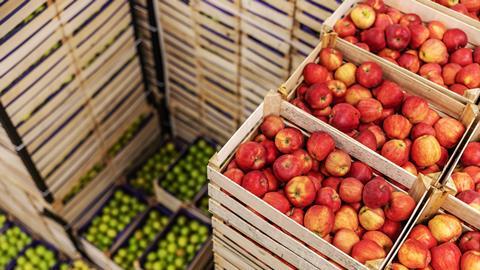British growers are losing money as returns fail to keep up with cost increases
Most British apple growers are losing money as the cost of production soars.
Trade body British Apples & Pears Ltd (BAPL) made the stark claim this week after laying bare the true cost-of-production crisis facing the industry.
BAPL commissioned farm business consultants Andersons to analyse current production costs, with its report revealing that it now costs a median £1.26 to produce a kilo of British apples.
BAPL said there is a disconnect between the prices consumers are paying for apples and returns to growers. According to ONS data, the lowest consumer price of apples increased 17 per cent between September 2021 and September 2022, however UK apple growers only reported a 0.8 per cent increase in what supermarkets pay them for their fruit.
Despite significant cost-of-production increases, British apples remain highly affordable, BAPL noted. With a single British apple costing around 34p to UK shoppers, they are less than half the price of a chocolate bar and offer huge nutritional benefits.
“I can’t think of a single apple grower that is making money,” said BAPL executive chair Ali Capper. “The costs of labour, storage, haulage, tree planting and orchard maintenance have all increased. What hasn’t increased is the return to growers.
“This analysis confirms what, anecdotally, growers have been saying for months. UK apple growing just isn’t profitable at the moment. In fact, for most it’s loss making. When growers cannot afford to invest in new apple trees and are grubbing orchards, the consequences are serious, not just for growers but also for the rural landscape and economy. We face biodiversity loss, lower returns to the Treasury and poorer outcomes for consumers.
“No one wants to import more apples. It makes no sense from a carbon or water footprint perspective, and it diminishes UK food security. We need to see specific government support to address energy costs and labour shortages, and we urgently need fairer returns for growers from UK supermarkets to ensure the future of the British apple industry.”




